Arts
Examining the role of The Arts as a catalyst for healing, transformation and action
Introduction
The practice of Art—in its infinite forms, functions and implications—is the most accessible and universal way of constructing meaning out of the world we inhabit.
Our Philosophy: The Arts are not just for experts. They are not solely for the enjoyment of the elite. They are not a superfluous extravagance. The Arts are for us all, expert and novice alike. They are not just an end in and of themselves, but a means. They shape, and are shaped by the world we inhabit.
Students in the Arts Scholars program gain a deeper understanding of the impact of art as a means to explore society and culture against the backdrop of our individual differences and shared experiences.
What you can expect: No matter your major, area of artistic interest, or skill level, as a member of our community, you will be challenged to strengthen your personal artistic skill set, experiment with new and different art forms, and gain a deeper understanding of the value of the arts in our personal and collective lives. We will investigate the power of the arts to:
- Communicate difficult concepts
- Advocate for social change
- Investigate the human experience
- Explore our own identities
- Develop our capacities as creative problem solvers and critical thinkers
- Reinforce, but also upend, existing systems of inequality and oppression
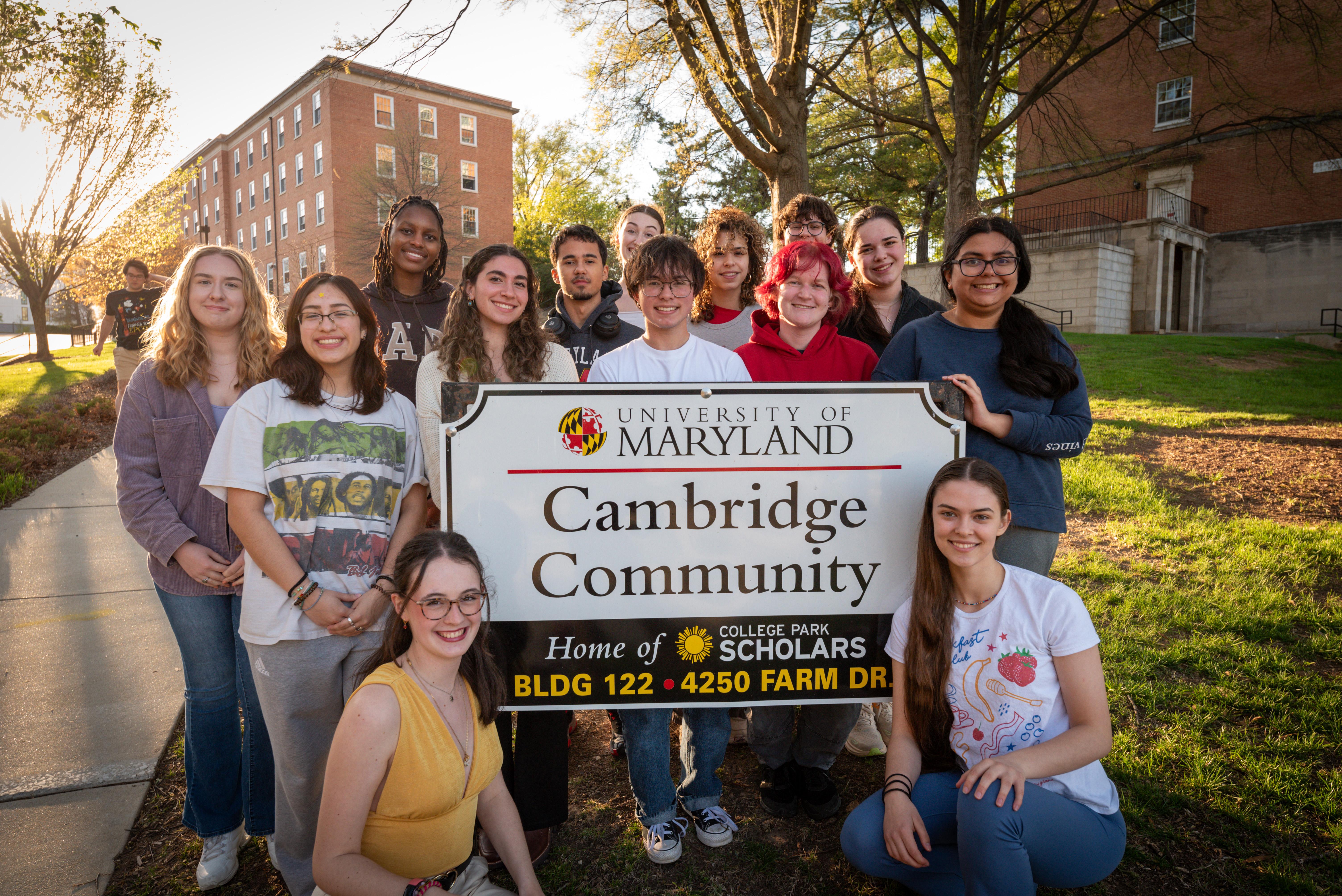
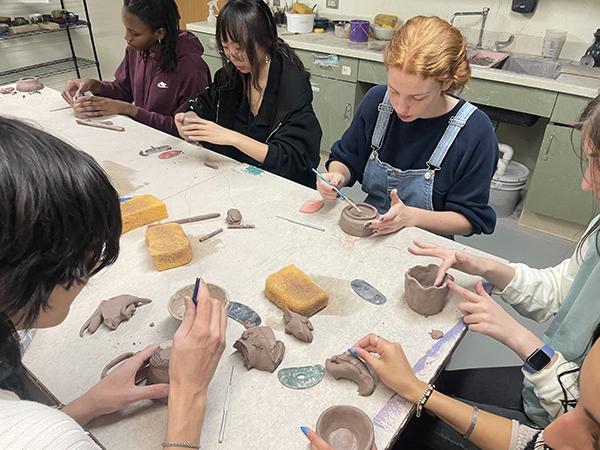
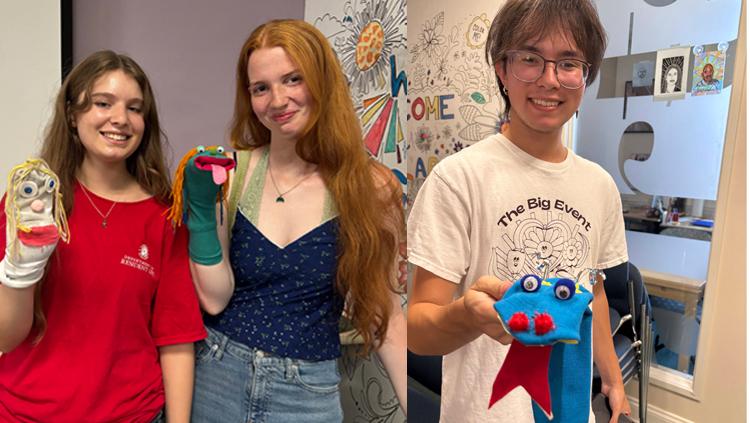
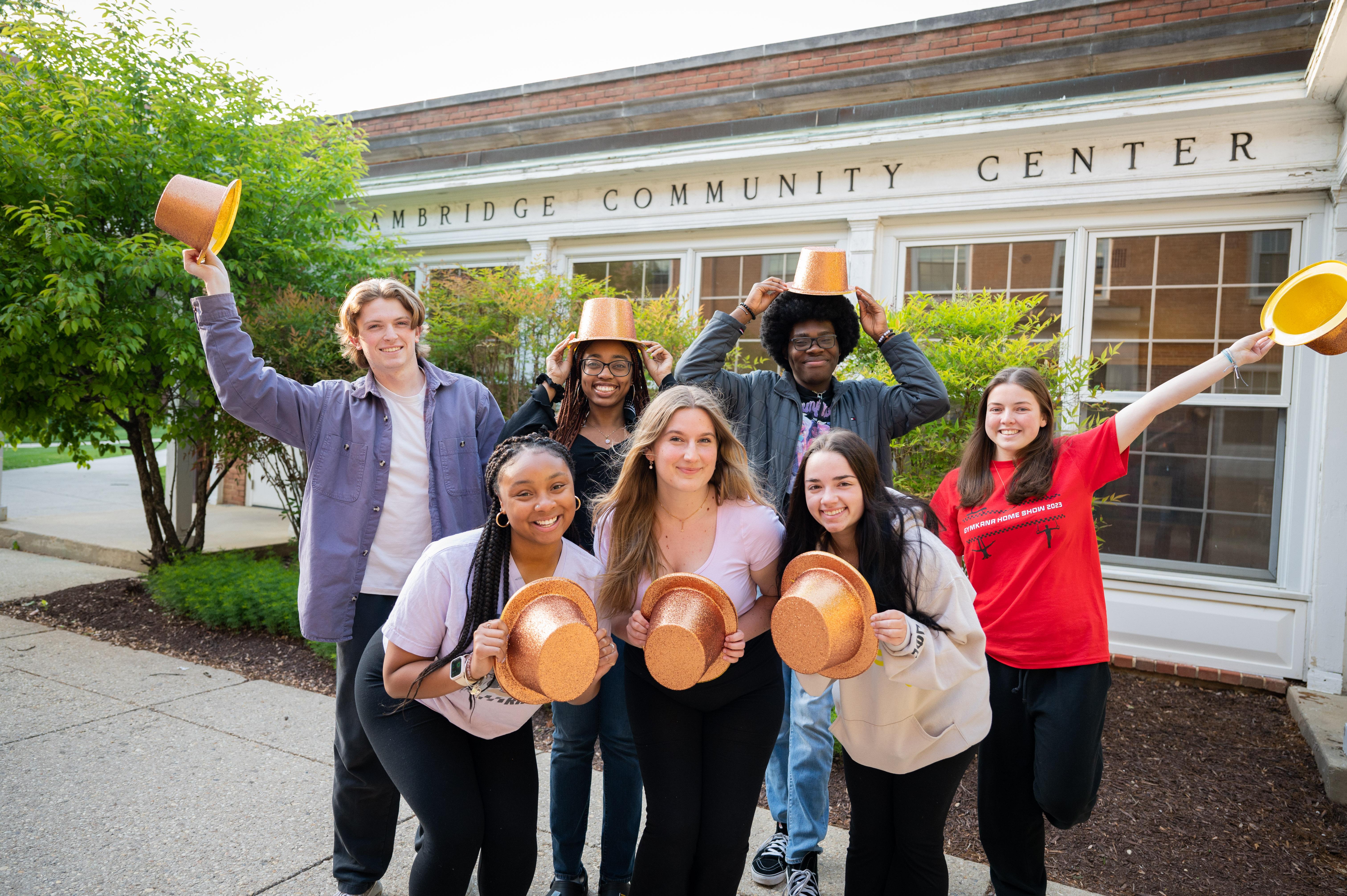
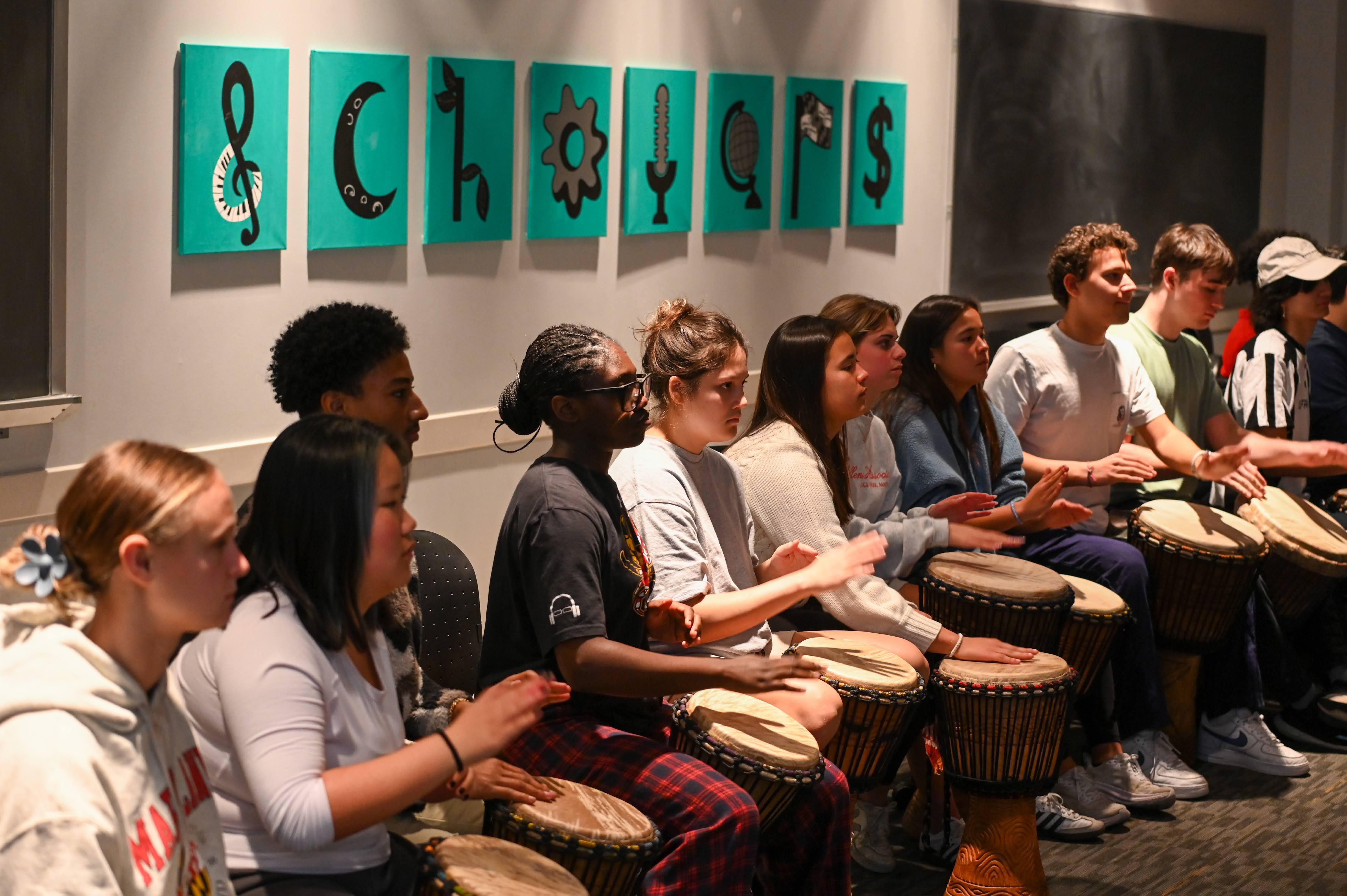
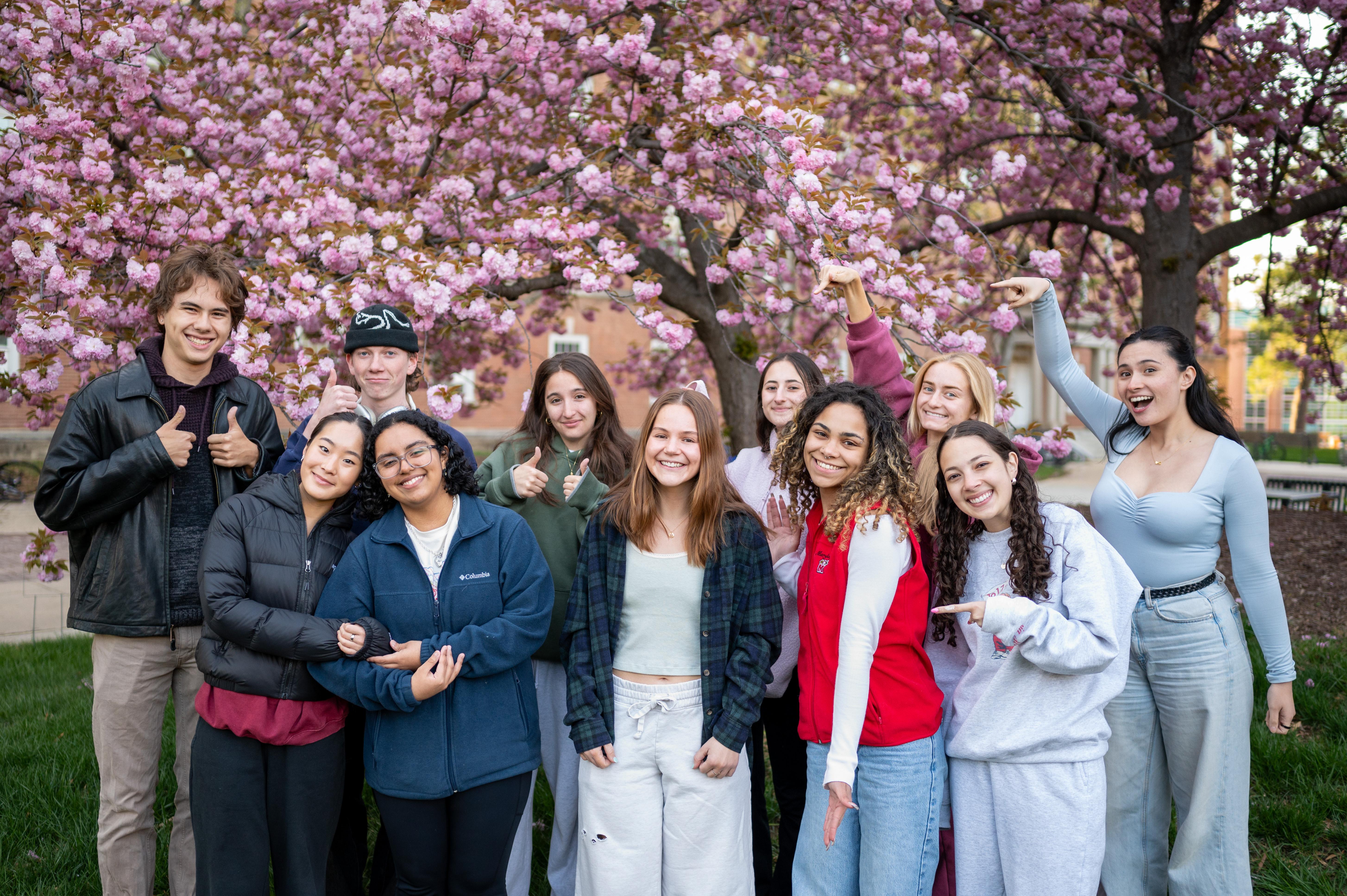
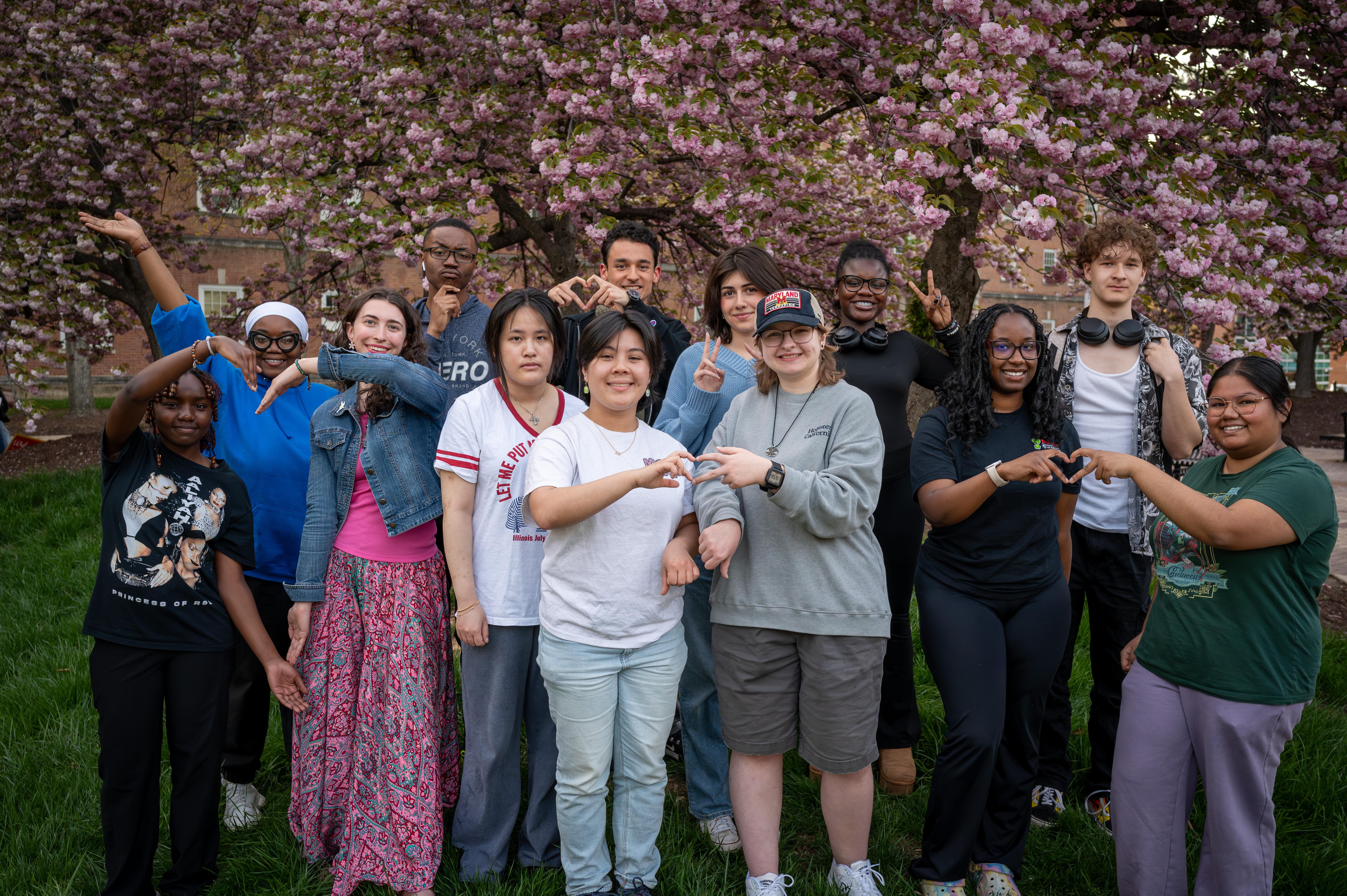
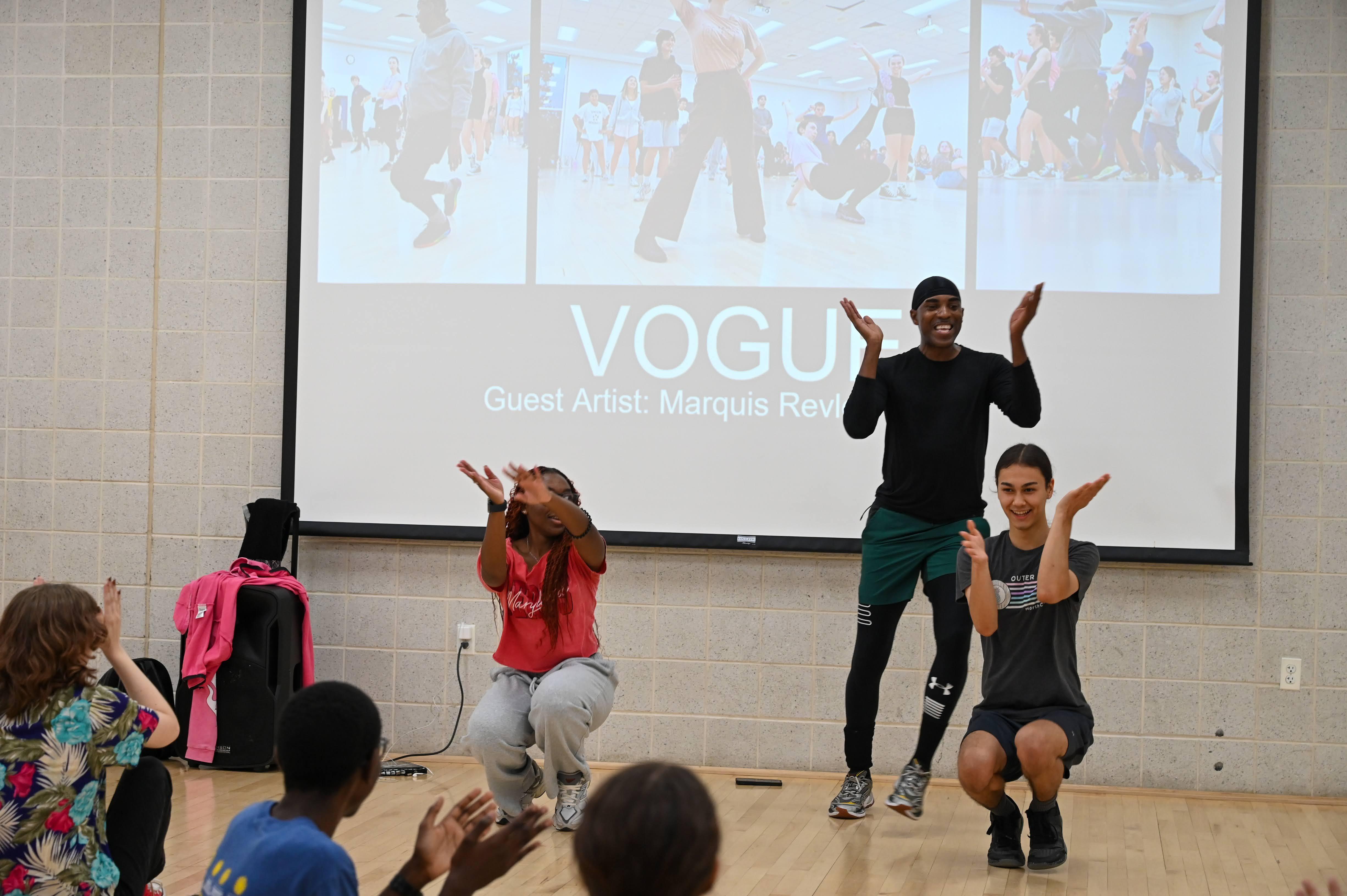
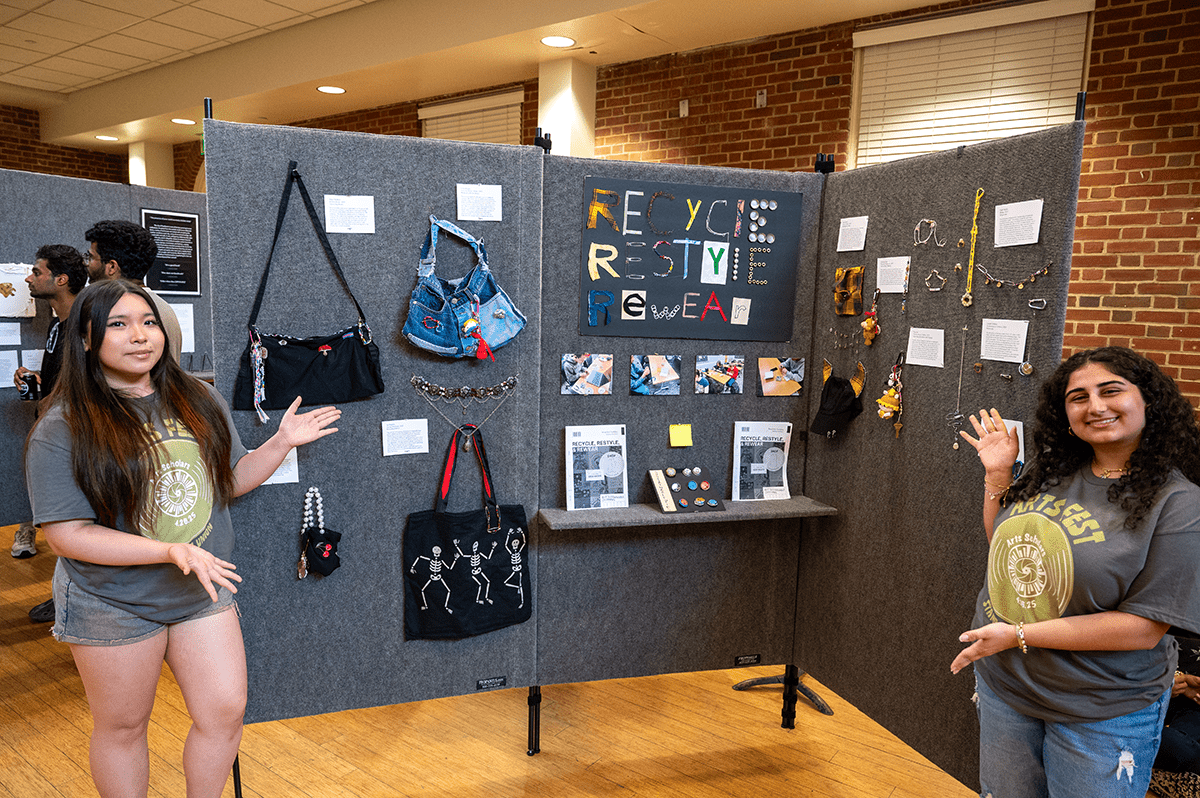
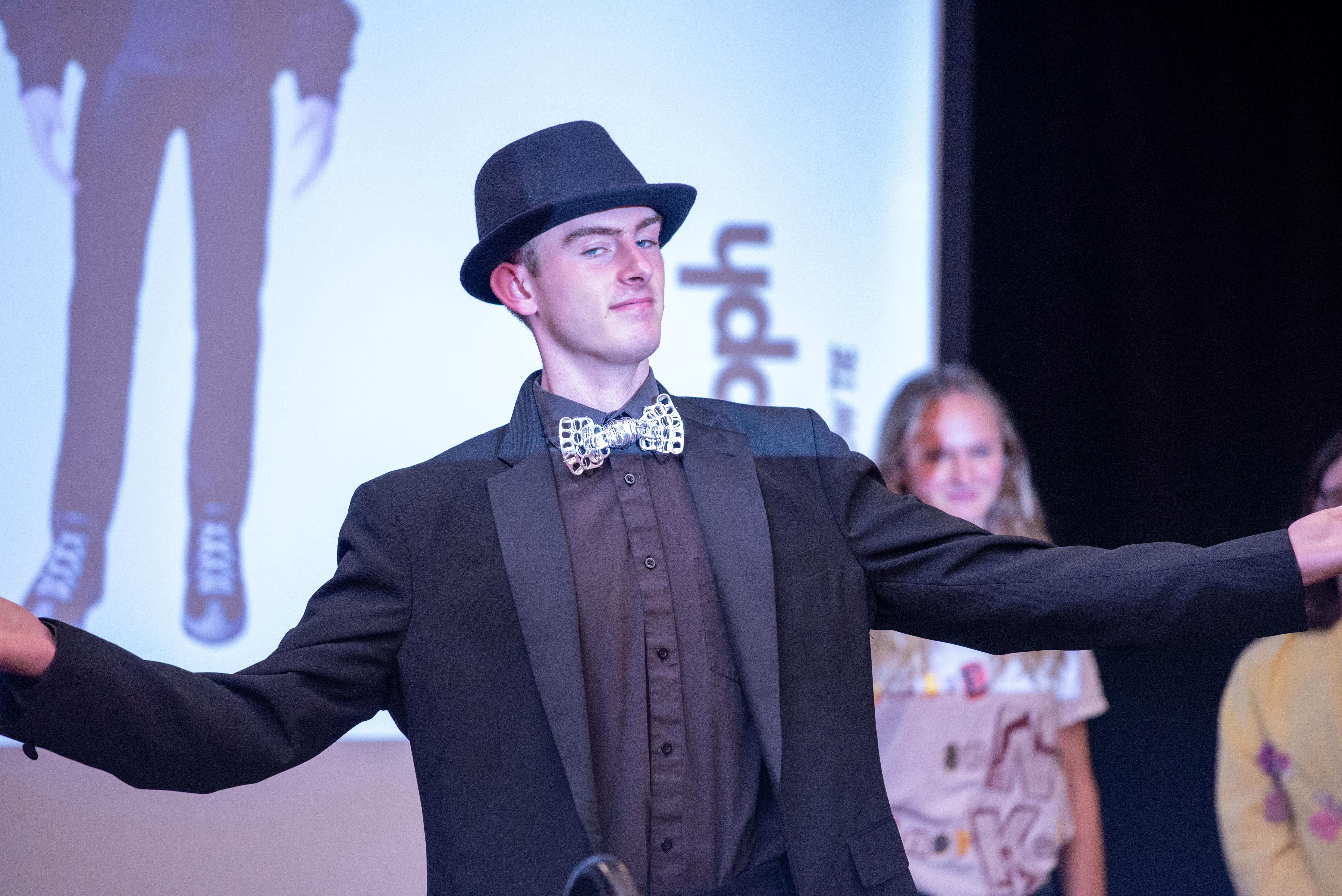
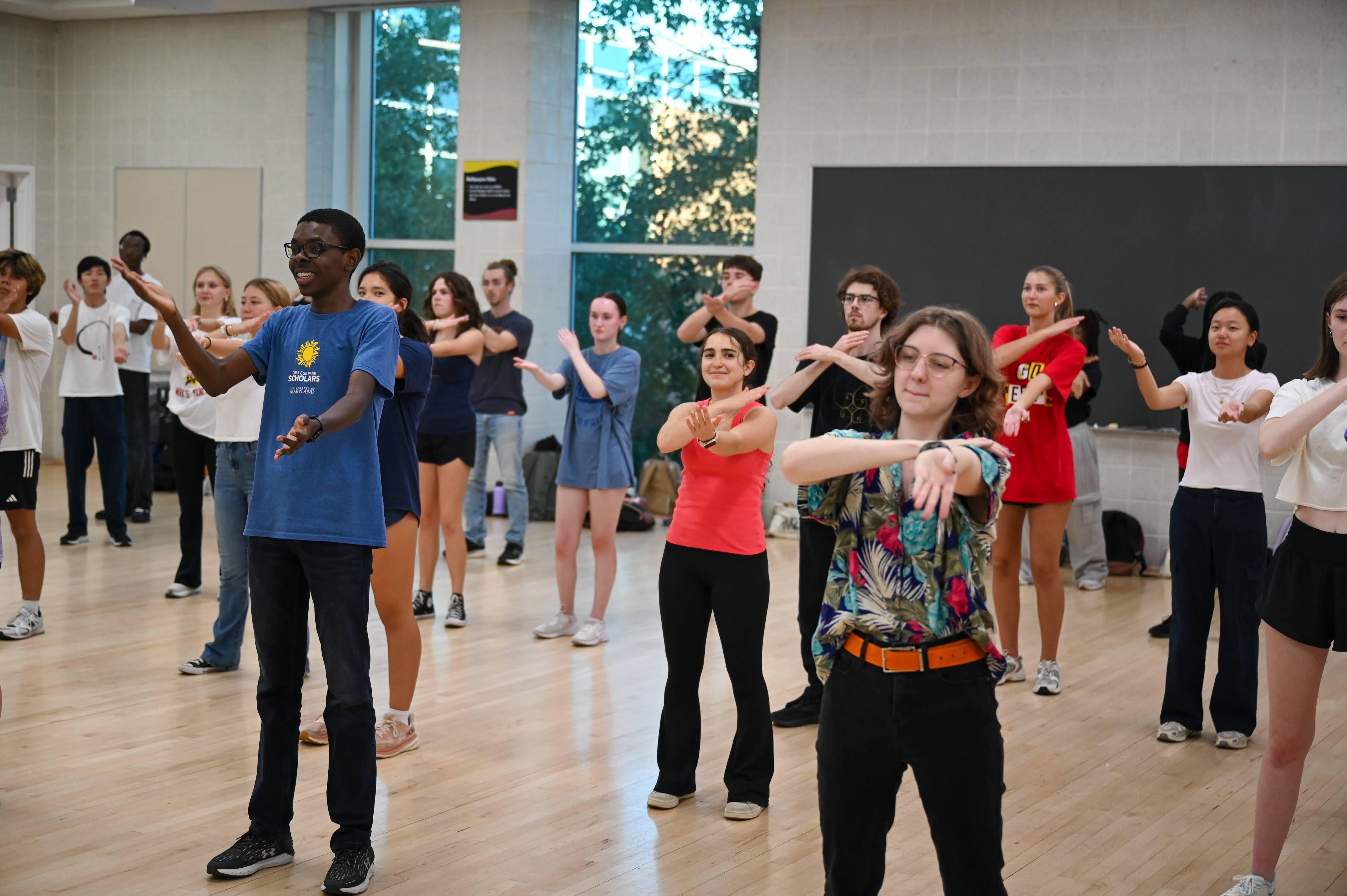
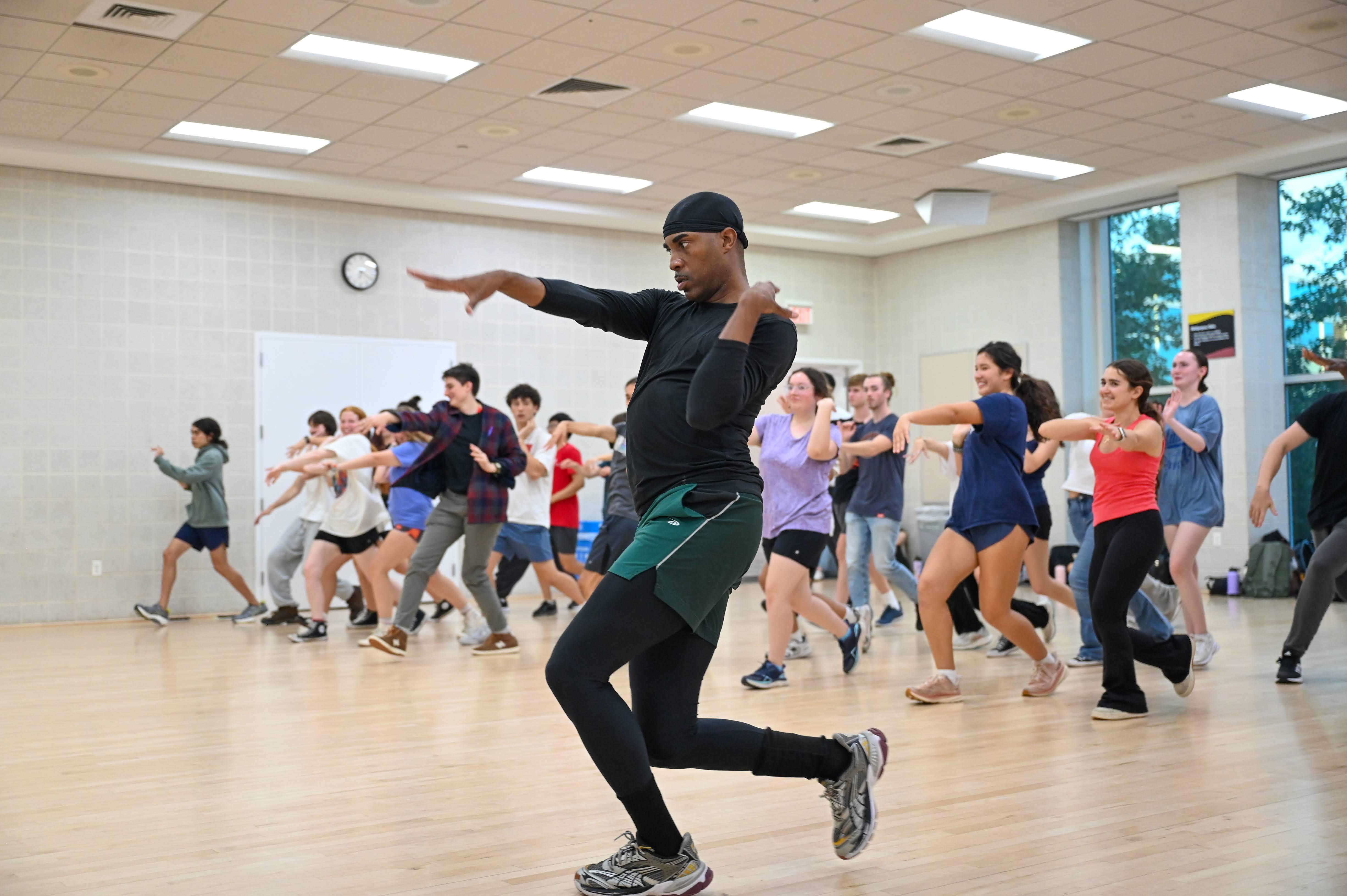
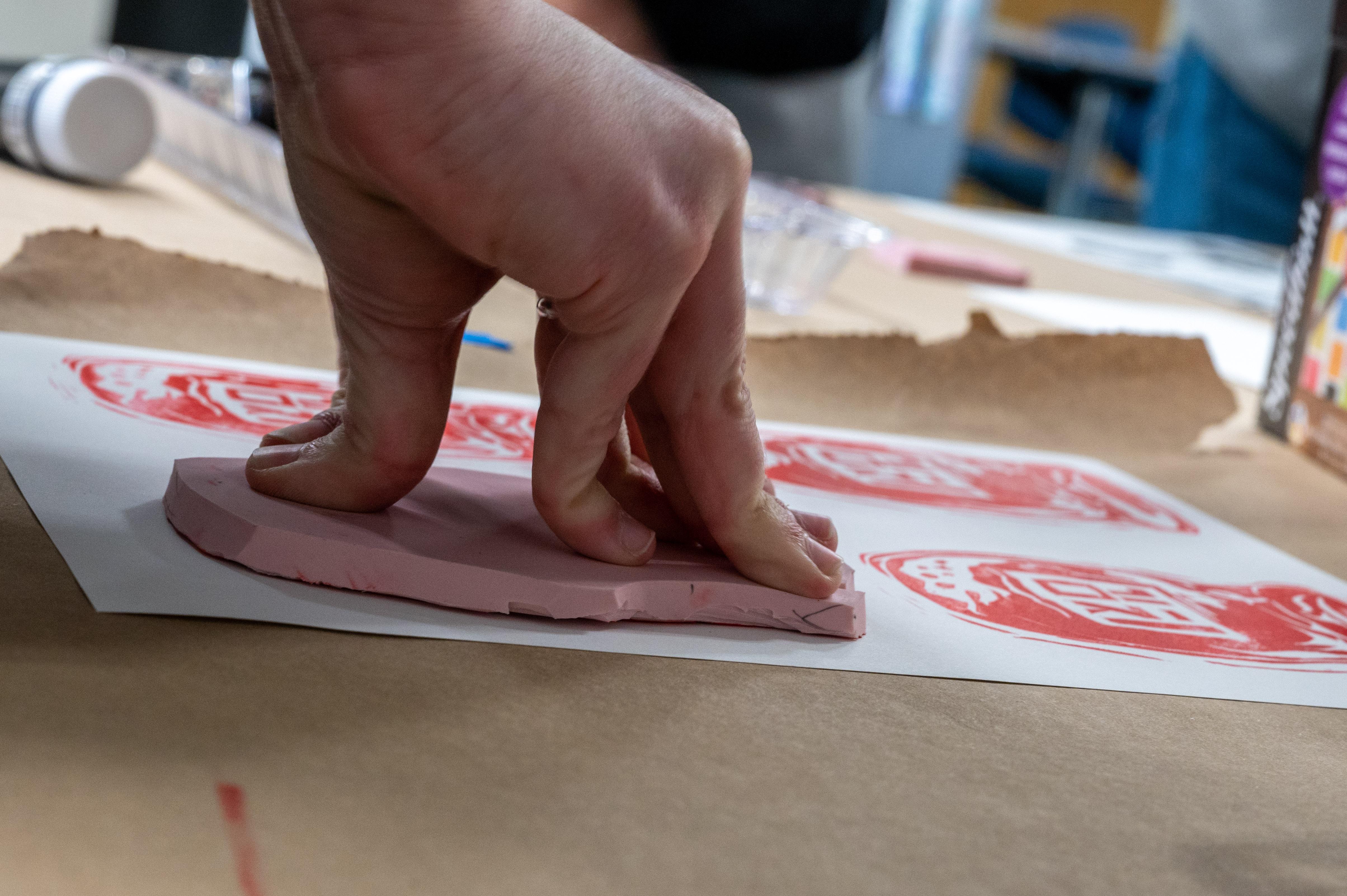

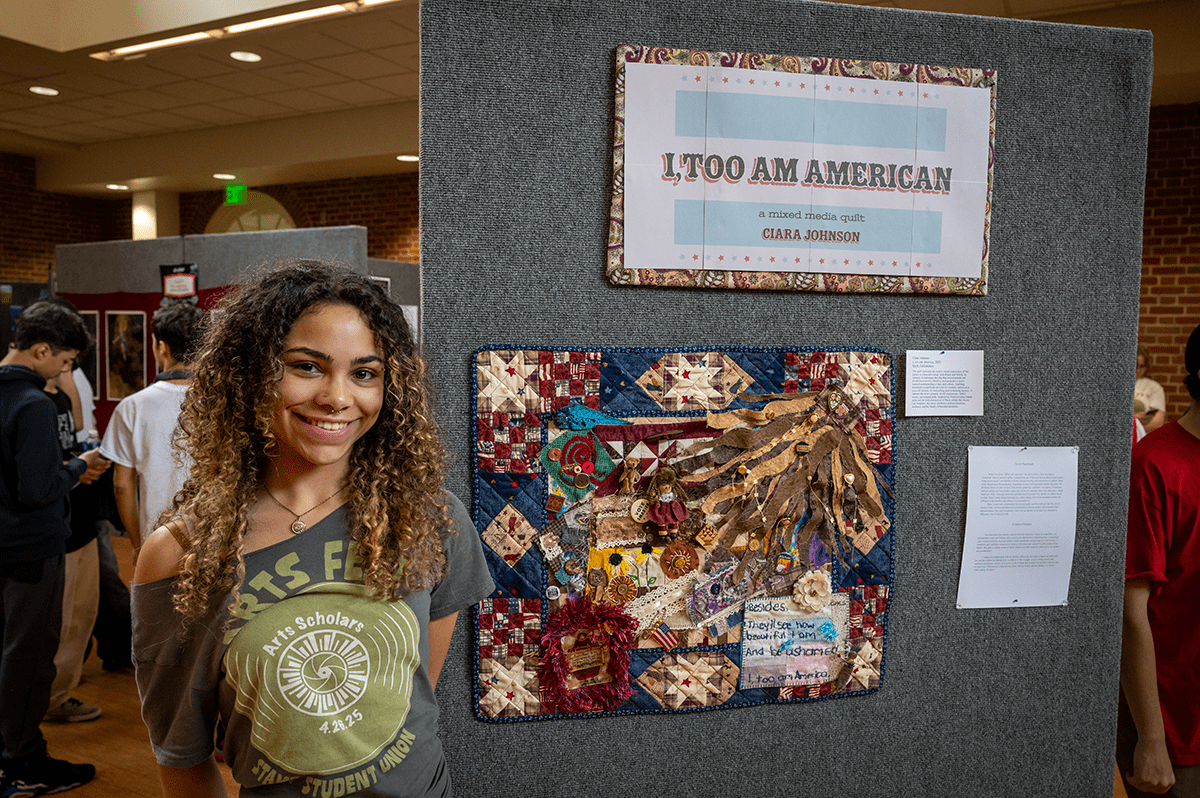
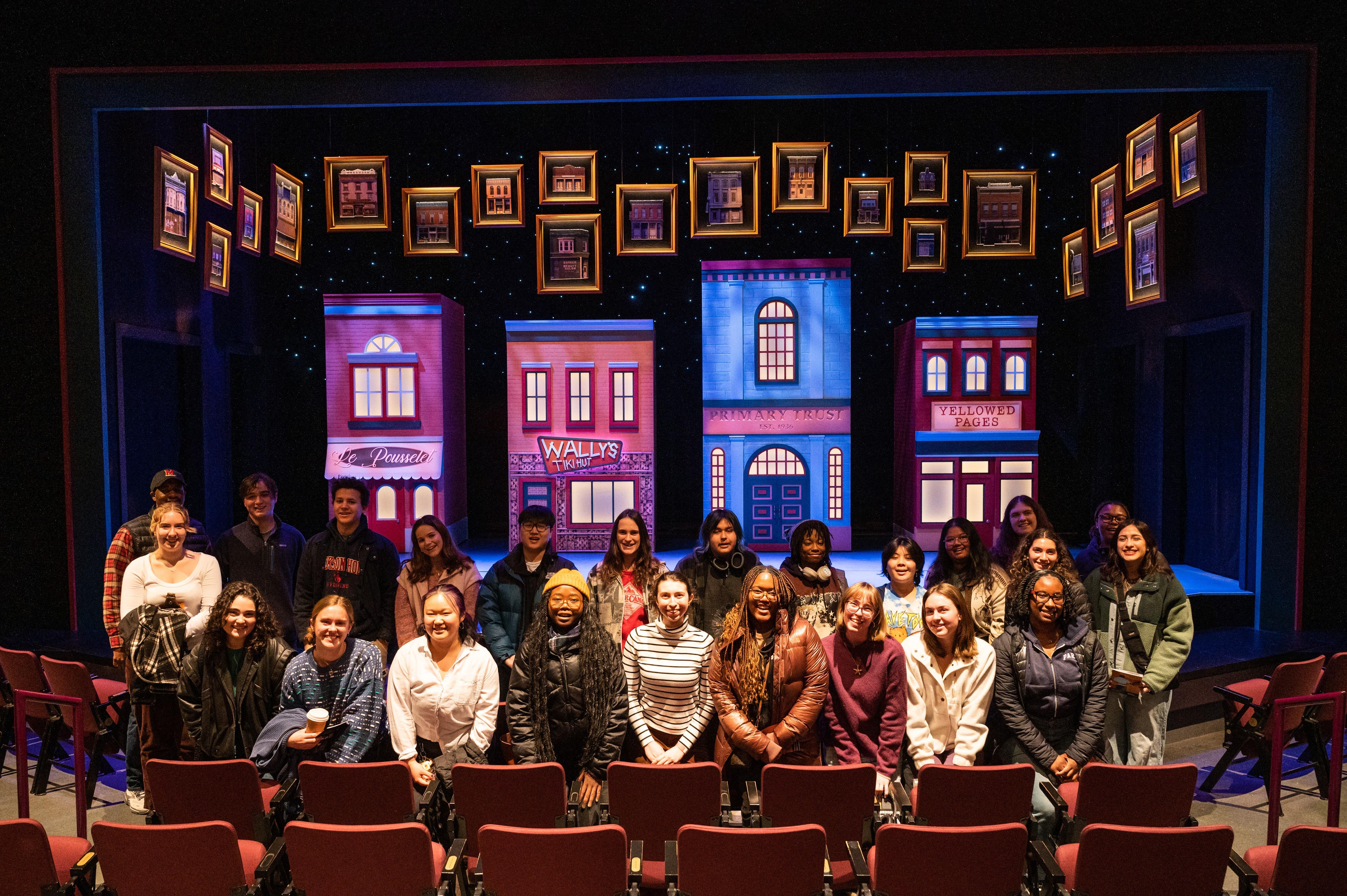
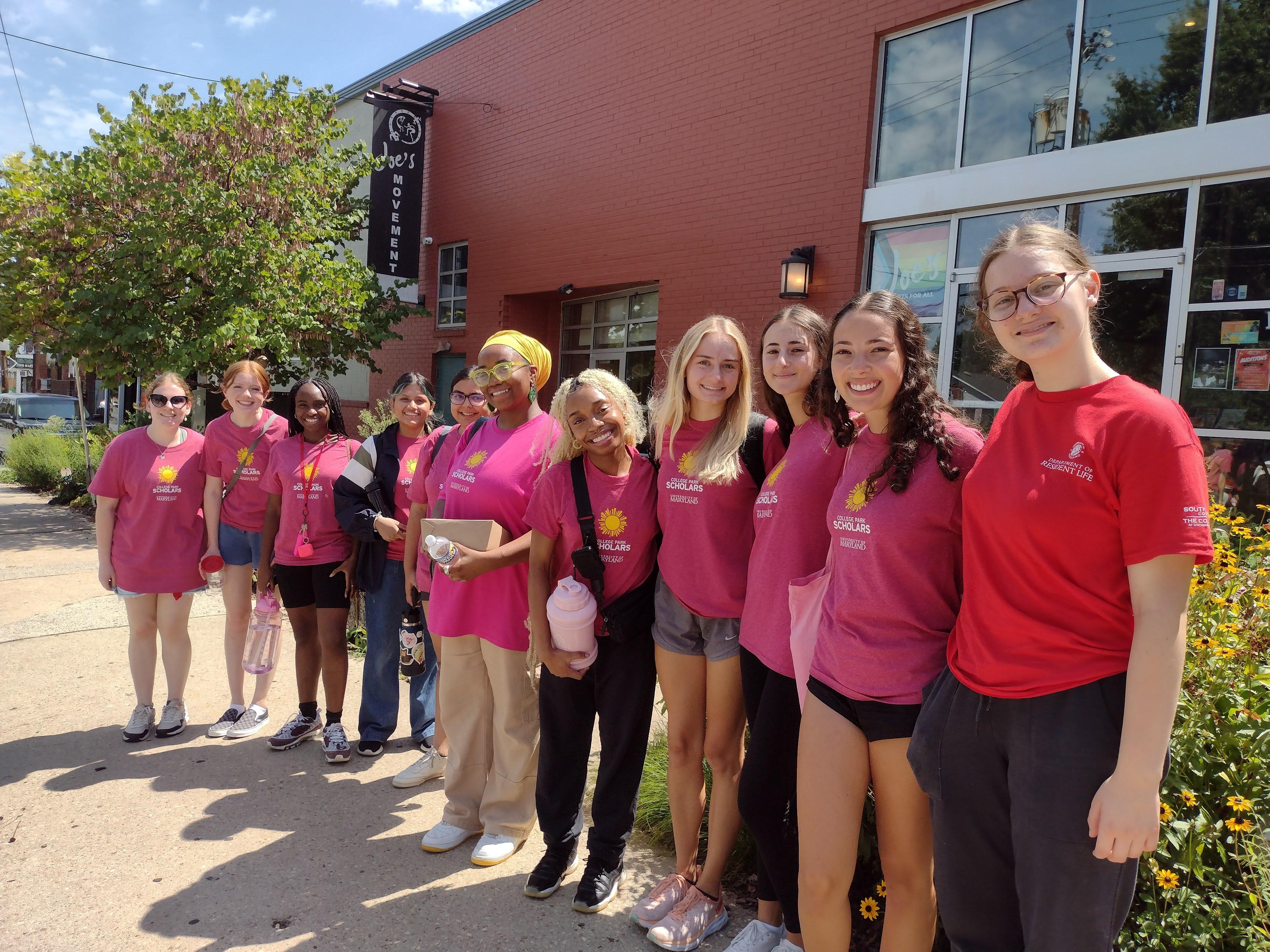
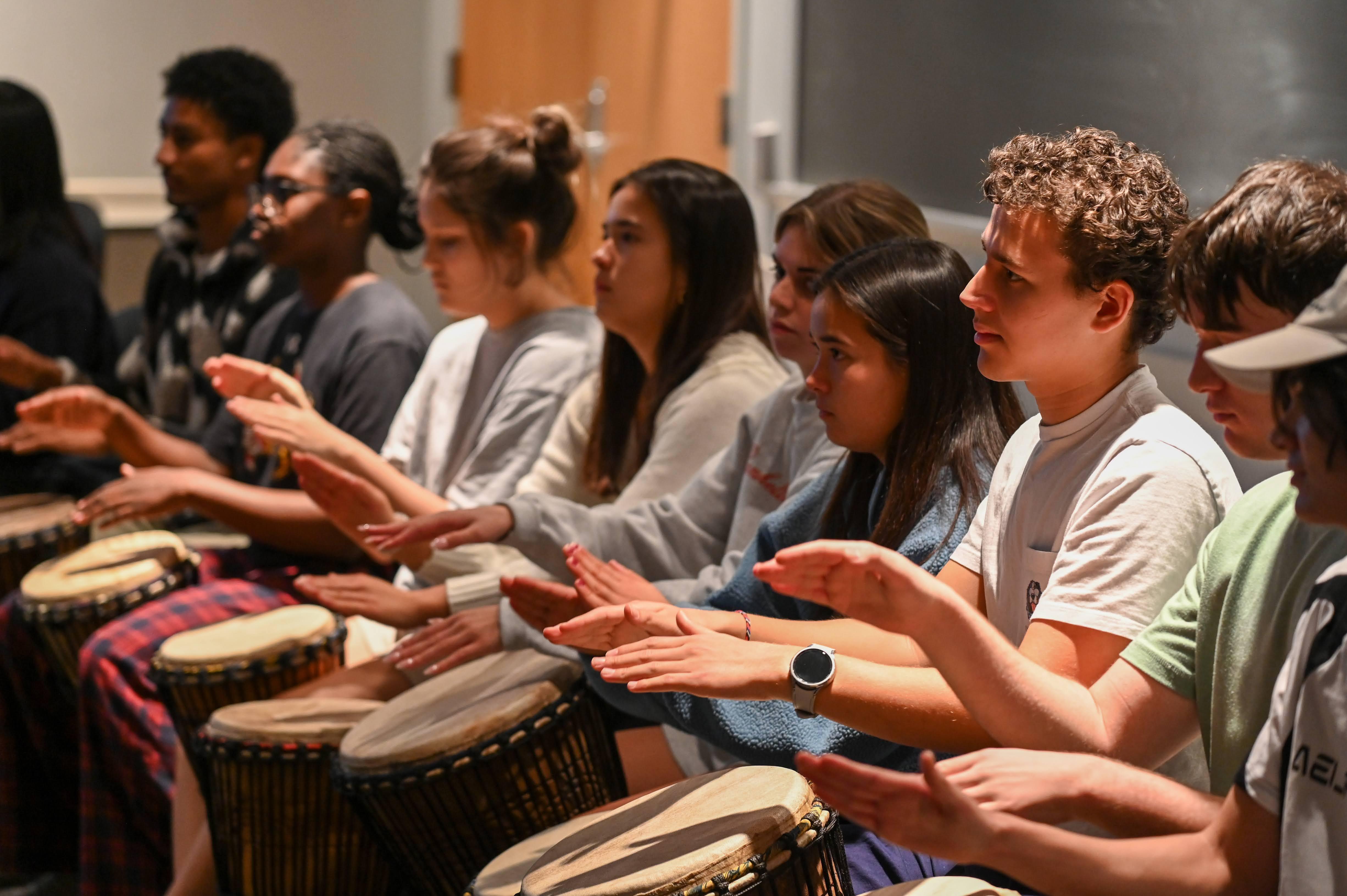
Colloquium and Lecture Topics
Through a mix of lectures, discussions, and guest artist workshops, and experiential projects, students consider (see our most recent “Year in Review” page for photos!):
- Vogue Dancing: How can art be used as a tool for resilience, resistance, and social chance?
- Artistic Consumption: How is artistic “taste” shaped by our social identities?
- Creative Research: How can empirical research, rapid iteration, and prototype testing improve your creative process?
- Spoken Word Improv: How can the principles of improv inform and improve our everyday lives?
- Campus Galleries: How can slow-looking help us combat the pressures of a frenzied world?
- West African Drumming: How can music build community, tell stories, and promote intercultural understanding?
I have been challenged to think differently, work cooperatively, embrace creativity and, most importantly, go beyond the limits I have set for myself. Because of this program, I can confidently say I feel infinitely more prepared for the “real world,” and for that confidence and growth, I could never be more grateful.
Other Learning Opportunities
Outside the classroom, Arts Scholars have many other opportunities….
Experience the arts first hand:
- Field trips: Each semester students visit locations such as The Clarice Performing Arts Center, the Everyman Theatre in Baltimore, the National Gallery of Art, and the National Museum of African American History and Culture.
- Maker Mixer: Teaching Assistant led community building events that include crafting, visiting campus galleries and maker-spaces, and attending shows on campus.
Creative Capstones:
- Sophomores develop capstone projects - identifying a social issue of significance to them to be explored through an artistic medium of their choosing. The capstone project is about your unique view of the world and what you want your audience to understand or experience as a result.
- All capstones are displayed at ArtsFest- an annual exhibition of student work in the Stamp Student Union.
Leadership opportunities:
- Arts Media Team: Social Media & Newsletter assistants work with Arts Faculty to research, draft, and publish the weekly newsletters and Instagram posts to the community.
- Arts Teaching Assistants: Arts Scholars graduates build their skills and experience leading discussions, developing events, and serving as mentors to current students.
Curriculum Overview
Over the two-year program experience (four semesters), students will complete up to 6 credits of supporting courses that will count toward your Arts Scholars citation. In most cases, these will also fulfill General Education requirements. Note that your Scholars courses—colloquiums, capstone practicum and supporting courses—will generally be in addition to any courses you take to satisfy major requirements.
The following represents a typical two-year curriculum, but individual schedules may vary. Details about courses and requirements can be found on the Arts Citation Checklist.
| SEMESTER | COURSE | CREDITS |
|---|---|---|
| Semester 1 | CPSA 100: Colloquium I | 1 credit |
| Semester 2 | CPSA 101: Colloquium II | 1 credit |
| Semester 3 | CPSA 200: Colloquium III | 1 credit |
| Semester 4 | CPSA 201: Colloquium IV | 1 credits |
| CPSA 240: Service Learning; or CPSA 250: Research (DSSP); or CPSA 260: Peer Teaching (DSSP) |
2 credits 2 credits 2 credits |
|
| Semester 1, 2, 3, or 4 | Supporting Course (var. Gen Ed) Supporting Course (var. Gen Ed) Supporting Course (DVUP or DVCC) |
3 credits 3 credits 1-3 credits |
Sponsoring College
Faculty
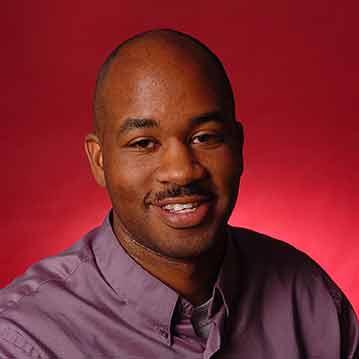
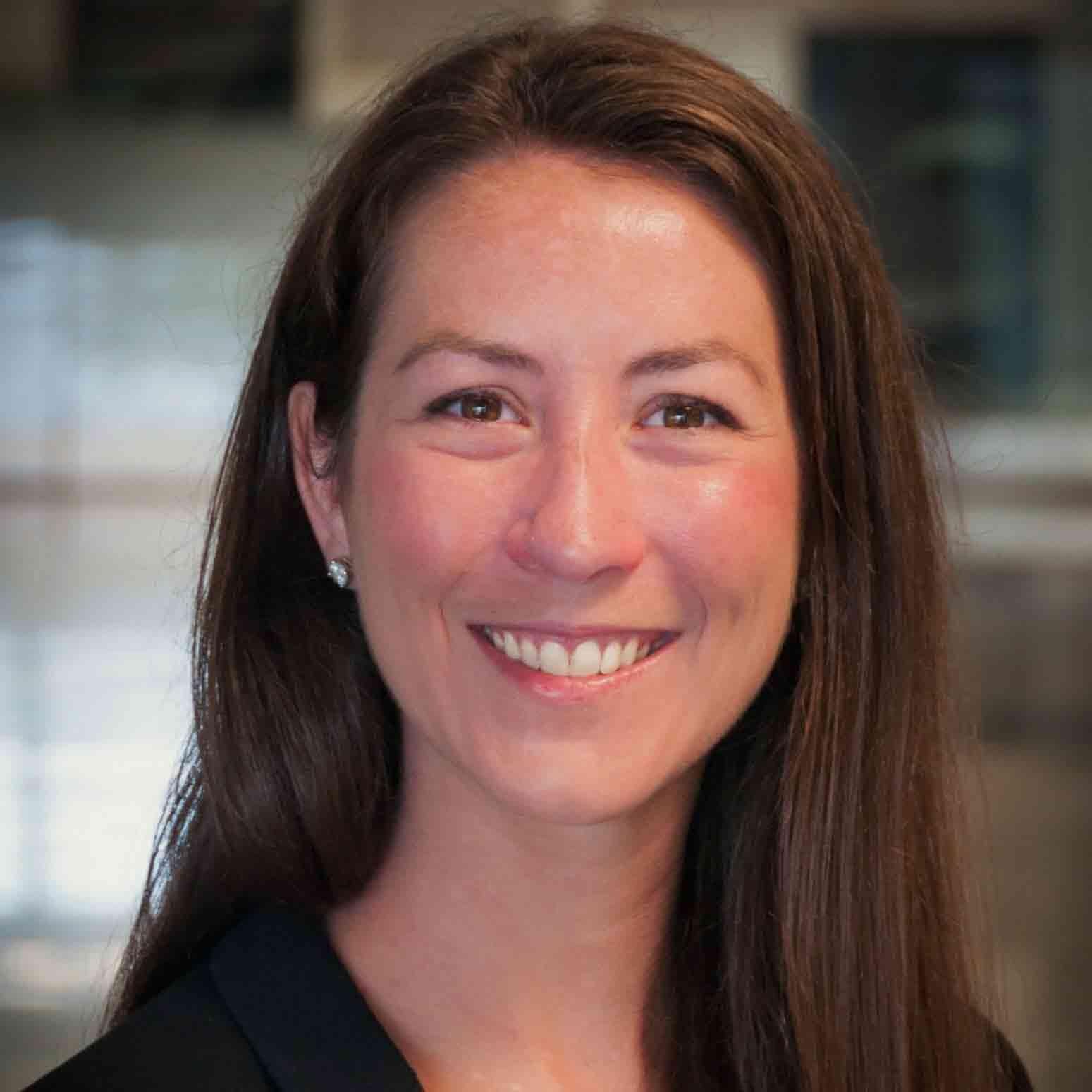
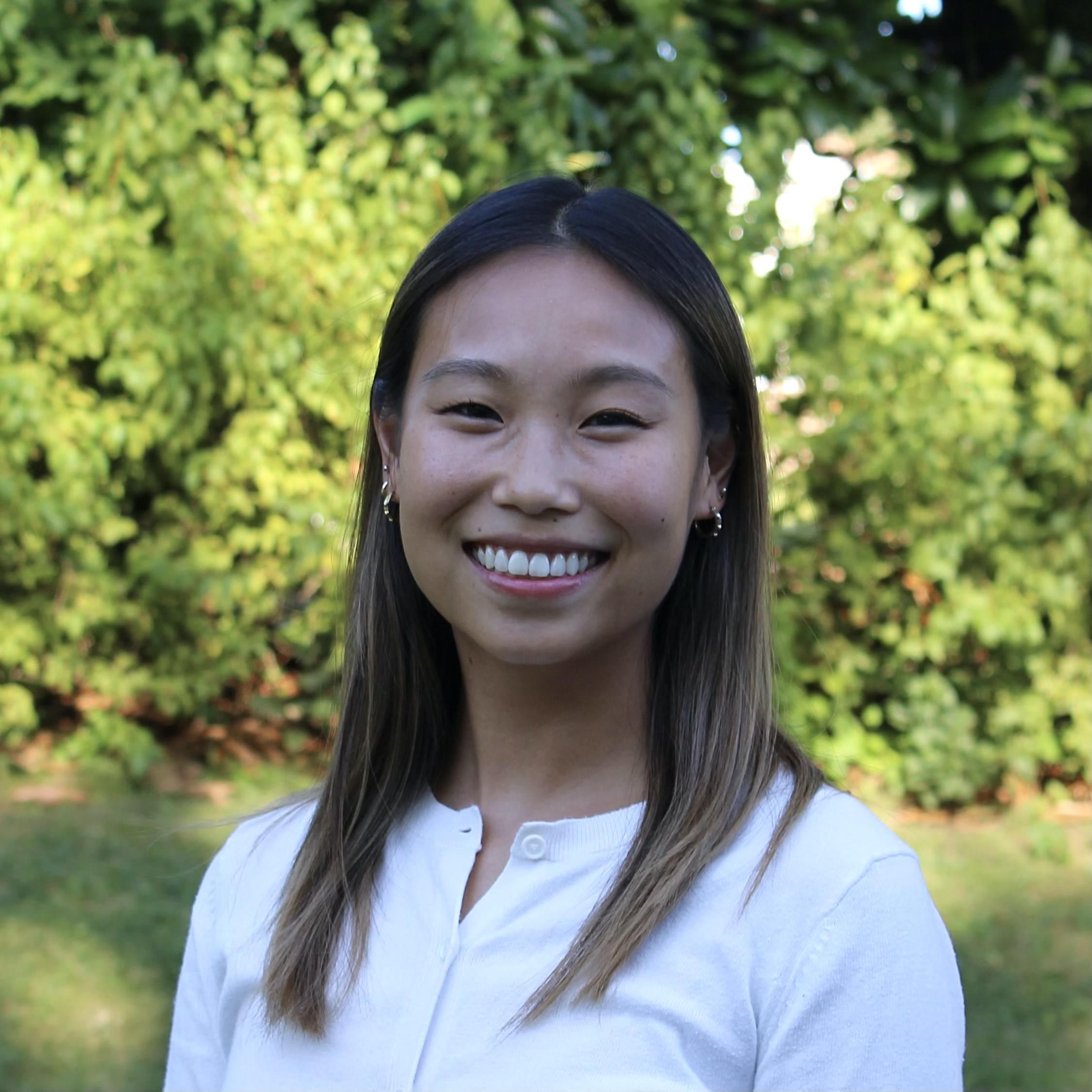
The Diamondback: UMD students' dance workshop highlights Japanese Butoh style, May 2022
Arts News
Scholars Alum Recognized by National Coalition for Work on Campus Voting
Alexandra Marquez, a Media, Self and Society Scholars alum and a 2021 graduate of the University of Maryland, was recently named Standout Undergraduate Student by the All in Democracy Challenge, a coalition of 850 higher education institutions across the country. The All in Democracy Challenge empowers colleges and universities to achieve excellence in nonpartisan student democratic engagement.
New Minor Expands STS Concepts Beyond Scholars
The Science, Technology and Society (STS) Scholars program has long pushed students to consider the ethical, social and political implications of science, research and technology. It’s the kind of thinking that isn’t readily incorporated into most STEM curricula, despite the high likelihood that these students will one day design or introduce innovations that could significantly impact society. Thanks to a new minor, however, more University of Maryland students will soon be exposed to STS teachings.
In Memoriam: J. Lee Hellman, Founding Director of Life Sciences Scholars
College Park Scholars is mourning the passing last week of Dr. John Lee Hellman, the founding director of the Life Sciences Scholars program—one of the four original programs in College Park Scholars. He served as director of Life Sciences from its launch in 1994 until 2009. Hellman was a lifelong Terp, having earned his bachelor’s and master’s degrees, as well as his doctorate, from the University of Maryland, College Park (UMD). After earning his Ph.D. in 1975, he went on to serve as a professor in the Department of Entomology in the then–College of Life Sciences. (Entomology is now a joint department of the College of Agriculture and Natural Resources and the College of Computer, Mathematical, & Natural Sciences.)
In-Person Service Day Relaunches With Enthusiasm
Kids bent over boxes of school supplies. Tubs of tomatoes, picked fresh off the vine. College students clad in waders, waist-deep in pond water. These were just a few of the scenes witnessed during College Park Scholars’ annual Service Day, which took place on Friday, Aug. 27, this year.
Longtime International Studies Director Concludes Scholars Tenure
A renowned scholar of political psychology, political violence and genocide, James Glass oversaw the International Studies Scholars program for 15 years. Dr. James Glass, director of the International Studies (IS) Scholars program for the past 15 years, has stepped down from his post, effective June 30. He was the longest-serving director in IS history.

